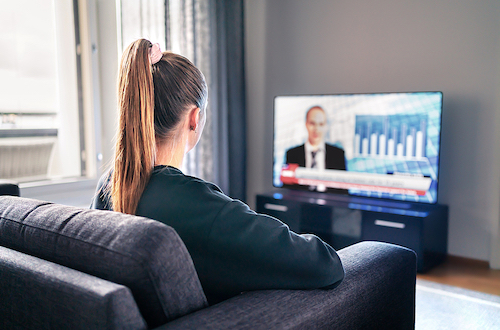 Daily engagement in political news can have a negative impact on mental health, but disengaging can also have consequences.
Daily engagement in political news can have a negative impact on mental health, but disengaging can also have consequences.
Research published in the Journal of Personality and Social Psychology found that strategies to manage the negative emotions that come from daily engagement may also reduce an individual’s motivation to act on what they care about politically.
“(We) started to notice how we, and many of the people we knew, felt overwhelmed by each day's politics. We decided to conduct research to explore how politics might be affecting people's lives, especially their well-being. We worried that day-to-day politics might be having a negative impact on people's physical and psychological health,” Matthew Feinberg, PhD, co-author of the study and a researcher at the University of Toronto told Theravive.
“We found that the negative emotions people feel in response to each day's politics corresponded with lower levels of psychological and physical well-being. However, we also found that these negative emotions also predicted greater motivation to take political action (e.g., write to your political representative, donate to a cause). Thus, there appears to be a trade-off where daily politics negatively affects well-being, but promotes greater civic engagement.”
Previous studies have found that politics can be a major source of stress in people’s lives. However, much of the research has focused on stress during major political events like presidential elections.
In this study, the researchers wanted to determine the mental health impact of everyday political news.
“We measured responses on a daily basis in our first two studies, and people's responses varied from day-to-day, but in general we found consistent evidence that politics is stressful for people,” Feinberg said.
In undertaking the study, the researchers undertook several experiments. First, they enlisted 198 Americans from different political backgrounds to answer questions every evening for two weeks about what they thought about most politically that day.
The participants were also asked to indicate the emotions they felt in response to those political matters, as well as detail how they managed those emotions and their psychological and physical wellbeing on that day.
They were also asked how motivated they felt to engage in some sort of political action each day.
The researchers found that overall, thinking about politics on a daily basis induced negative emotions. Those who reported more negative emotions related to politics also reported worse psychological and physical health every day on average.
However, these people also reported having a greater motivation to engage and act on political causes that mattered to them. This included things like donating to a political campaign or volunteering.
In further experiments, the researchers found similar results in a larger group of 811 people. They found that watching political news clips caused more negative motions than watching neutral, non-political news.
In a final experiment, the participants were asked to try different strategies for emotional regulation while watching news clips. These included distraction, cognitive reappraisal and acceptance of negative feelings.
“As part of our research we measured a number of ways people can deal with the negative emotions that lead people to experience worse well-being due to politics. We found two strategies were particularly effective. The first involves distracting oneself so that politics is not your focus (e.g., watch a comedy instead of the news). The second involves reinterpreting or rethinking politics in a way that makes it feel less negative. For instance, after hearing about a political scandal or uncivil political rhetoric, you might say to yourself "well, at least this will make for a funny monologue on the late shows tonight," Feinberg explained.
“Using either of these strategies, we found, resulted in people feeling less negative emotion about politics, which in turn, predicted higher levels of well-being. However, we found that using these strategies had a downside: people were less inclined to take political action. Thus, it appears that shielding oneself from politics using these strategies protects well-being, but minimizes the likelihood of taking action to change the political system that was causing the stress in the first place.”
The researchers argue their study emphasis that politics has a significant day to day impact on the mental health and wellbeing of many Americans. They say this could have important implications, particularly for those who want to engage in political causes but also want to protect their mental health.
“Each day's politics is influencing the general public's lives in a number of ways,” Feinberg said.
“Our next goal is to find a way to overcome the trade-off I mentioned -- how can we protect ourselves from the negative effects of politics without minimizing people's desire to take political action?"
Elizabeth Pratt is a medical journalist and producer. Her work has appeared on Healthline, The Huffington Post, Fox News, The Australian Broadcasting Corporation, The Sydney Morning Herald, News.com.au, Escape, The Cusp and Skyscanner. You can read more of her articles here. Or learn more about Elizabeth and contact her via her LinkedIn and Twitter profiles.